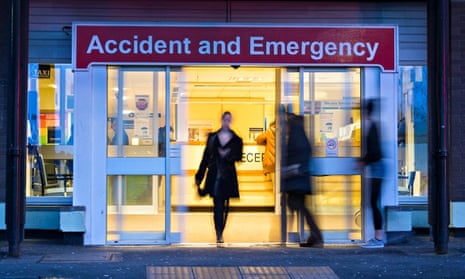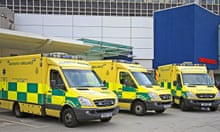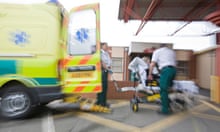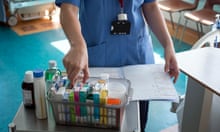An alarming new dimension to the NHS crisis has been revealed as data shows young adults are bypassing GPs and heading straight to overstretched A&E departments because they can’t get suitable appointments.
A stark generational divide in the way people use the NHS is highlighted in a report by Citizens Advice, which finds that people aged 18 to 34 are more than twice as likely to attend A&E departments or walk-in centres as those aged 55 and over – and that they are far less likely than older people to be able to see a GP when they need to.
The findings suggest that, despite repeated promises by successive governments to make GP services more accessible, the NHS is still failing to cater for a working population that wants family doctors to be available at times that fit in with busy working lives.
The data will stoke the increasingly fraught debate over the future of the NHS, which both the Conservatives and Labour believe will be a key battleground in next year’s general election campaign. Based on responses from 900,000 people across England, Citizens Advice found young adults were more than twice as likely to be unable to secure an appointment with their GP at a convenient time as those aged 65 and over, and that levels of satisfaction with and trust in the GP service were dramatically lower than among those of pensioner age.
It found that 30% of young adult respondents had found their experience of GPs to be “very good”, compared with 64% of those aged 75 and over. One in seven people (14%) aged 18-34 could not see a GP last time they tried to make an appointment. Just one in 17 (6%) aged 55 or over said they had been unable to see their GP. One in eight (13%) of younger adults did not get any professional help for a health problem after failing to see their GP.
Gillian Guy, chief executive of Citizens Advice, said failure to treat younger people outside hospital would add to the financial pressures on the NHS. “GP services need to keep up with 21st-century lifestyles. With many younger adults out at work, it can be difficult for them to get an appointment with a GP, particularly at a convenient time. As a result, some people are struggling to access the medical advice they need.
“It is in the NHS’s interest to get primary healthcare for younger adults right and ensure services fit around busy working lives. A failure to meet their needs piles more pressure on budgets,” Guy said.
The report helps explain the rapidly growing pressures on A&E services, as the NHS struggles to cope with the challenges of an ageing population, more sophisticated and expensive methods of treatment that are creating a culture of rising expectations, and limited resources.
It also emerged on Saturday that a secret report approved by health secretary Jeremy Hunt could double the time it takes ambulances to reach critically ill patients. A document seen by the Mail on Sunday reveals that the target time to get to those suffering a range of serious problems including strokes and seizures is to be increased to 19 minutes.
On Friday, figures from NHS England showed that in the seven days to 14 December the percentage of patients who were seen in A&E within the target time of four hours of arriving had hit its lowest level since monitoring began in 2010. Other data this weekend casts further light on the extent of the NHS crisis, which is seeing hospitals increasingly struggling to cope.
It includes:
■ New analysis of the official GP patients’ survey by the House of Commons library, which found there were 37.4m failed attempts to book an appointment with a GP last year, affecting about 4.7 million people. The figure is 700,000 higher than the year before.
■ Figures released on Friday that show a 27% rise since November last year in the number of beds taken up by older patients who could not be discharged because of a lack of social care places in the community. In November this year, 94,046 bed days were lost when medically well patients could not be discharged.
■ The findings of a survey by the medical trade journal, Pulse, published on Saturday, which found that four in 10 GPs have taken or expect to take time off because of burnout as a result of increasing workloads and intense scrutiny.
The strains on GPs are being blamed in part for a 15% fall in the number of graduates applying for GP training roles this year, compared with 2013.
Citizens Advice found that young people often prefer to use walk-in centres instead of GPs but noted that nearly a quarter of these seven-day-a-week, 24-hour centres had closed since 2010.
Andy Burnham, the shadow health secretary, said: “Under this government, it has got harder to get a GP appointment. People compare it to getting sought-after concert tickets, sitting for hours early morning with the phone on redial. Sadly, too many young people leading busy lives are now giving up and going straight to A&E.
“This is an unacceptable state of affairs and cannot continue. To solve the A&E crisis, David Cameron must take immediate action to restore confidence in primary care. He needs to reverse his decision to end evening and weekend opening, halt the closure of walk-in centres and match Labour’s guarantee of a GP appointment within 48 hours.”
A Department of Health spokesman said: “We’re giving the NHS £150m to develop new ways of improving GP access for millions of people, including 8am to 8pm appointments seven days a week, as well as email and Skype consultations. Next month commuters will also be able to register at a surgery near work.”








Comments (…)
Sign in or create your Guardian account to join the discussion